Difference Between Chronic And Acute Disease
Difference between chronic and acute disease. An acute disease is a condition that comes abruptly and lasts for a shorter period while chronic disease is a condition that persists for a longer period with lasting health effects. Acute disease refers to a disease that has a quick onset and it lasts for a short period of time. So people are often unaware of.
The term chronic refers to those diseases which are conditional and long lasting over a life time. Acute diseasesinclude colds fluand strep. The difference between acute and chronic is that acute is the disease that lasts for a small period whereas chronic is a disease that continues for an extended period.
The conditions we develop are often categorized as either chronic or acute. Advertisement - Continue Reading Below Acute and chronic both are health conditions but there is a lot of difference between a disease that is acute and a disease that is chronic. 5 linhas The condition is said to be chronic when the disease lasts for more than three months.
In contrast the chronic disease develops quite slowly and this is the main difference between acute and chronic disease. But what do the terms mean and what are the. Key Differences between Chronic and Acute Diseases Acute problems or illnesses appear suddenly and the symptoms can be very intense whereas in the case of acute ones they develop and worsen gradually.
Furthermore an acute disease is often not life-threatening. So whats the difference. The diseases which occur suddenly and last for a few days are called acute diseases.
Chronic diseases do not show any symptoms in their prior stages. AKI is mostly reversible if the underlying disease is reversed. Examples of chronic conditions include osteoporosis asthma heart disease osteoarthritis kidney diseaseand diabetes.
The difference between acute and chronic disease is that acute disease is sudden and severe in onset and of longer duration while the chronic disease is progressive in onset comparatively less in severity and of longer duration. Acute kidney injury AKI is the sudden and unexpected loss of glomerular filtration rate GFR for many reasons.
Chronic diseases do not show any symptoms in their prior stages.
Acute pain is experienced after someone has been hurt for example a cut or broken bone. Definition of Chronic Disease. 5 linhas The condition is said to be chronic when the disease lasts for more than three months. Chronic kidney disease CKD is the loss of glomerular filtration rate GFR that is usually due to underlying diseases such as diabetes high. Acute problems or diseases are not as bad as chronic ones. Chronic diseases extend for a longer period of time than acute ones. The diseases which occur suddenly and last for a few days are called acute diseases. The Difference Between Acute and Chronic Kidney Disease Kidney Diseases - The Difference. The term chronic refers to those diseases which are conditional and long lasting over a life time.
Examples of chronic conditions include osteoporosis asthma heart disease osteoarthritis kidney diseaseand diabetes. But what do the terms mean and what are the. You may have come across the terms acute and chronic in references to illnesses and diseases. So what are the main difference between acute and chronic diseases. So people are often unaware of. Examples of chronic conditions include osteoporosis asthma heart disease osteoarthritis kidney diseaseand diabetes. The term chronic refers to those diseases which are conditional and long lasting over a life time.


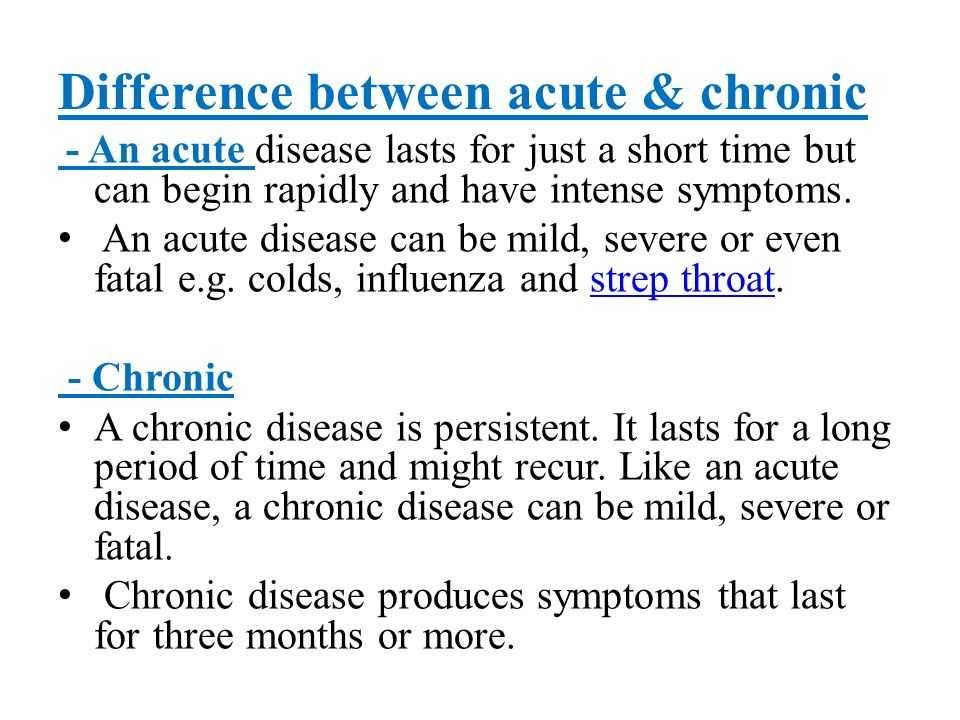


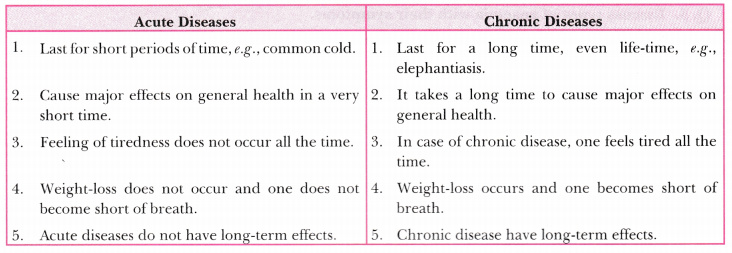

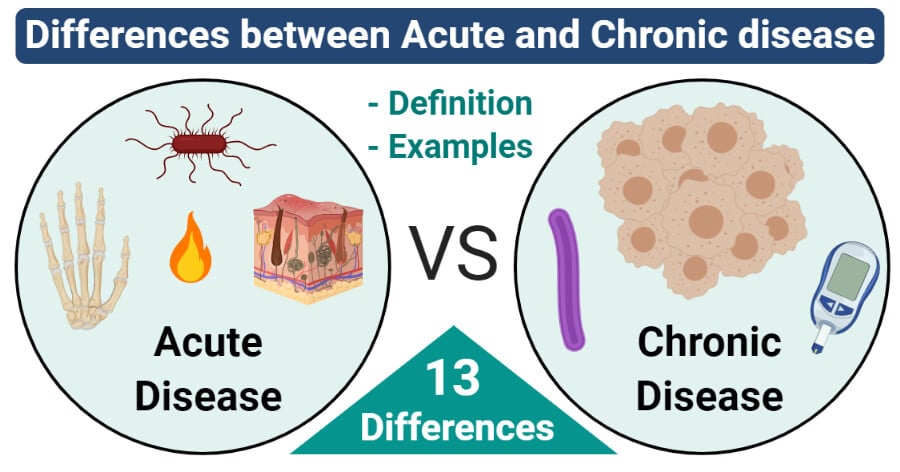
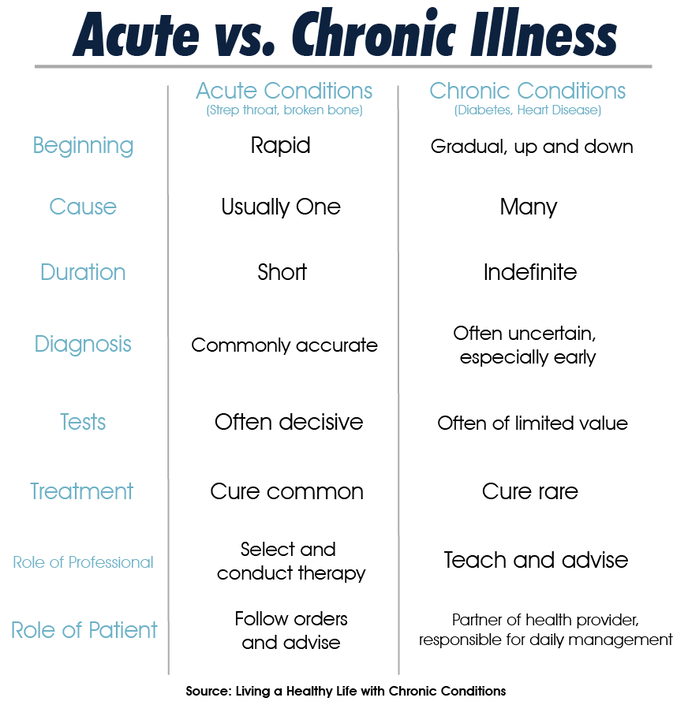

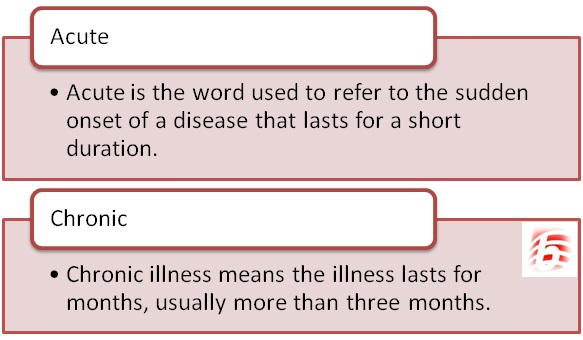










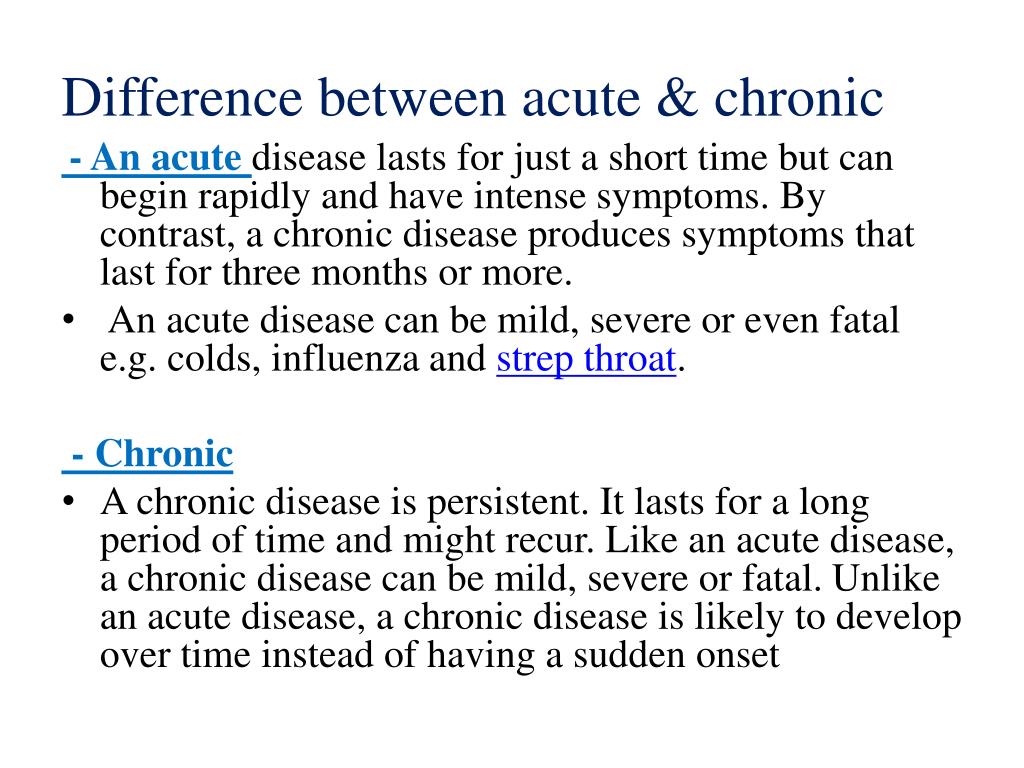
















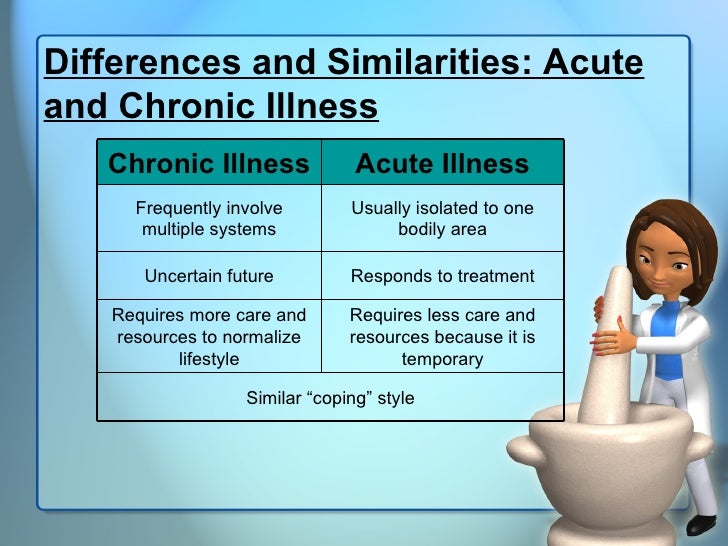




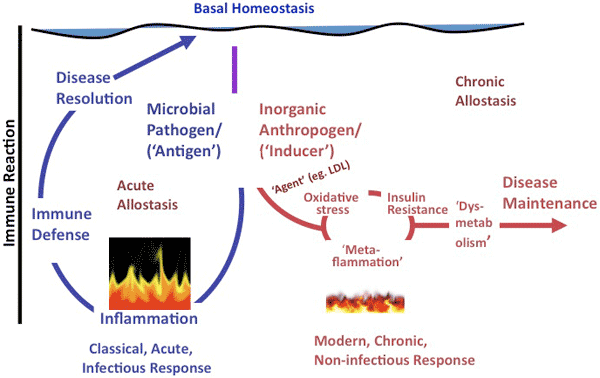
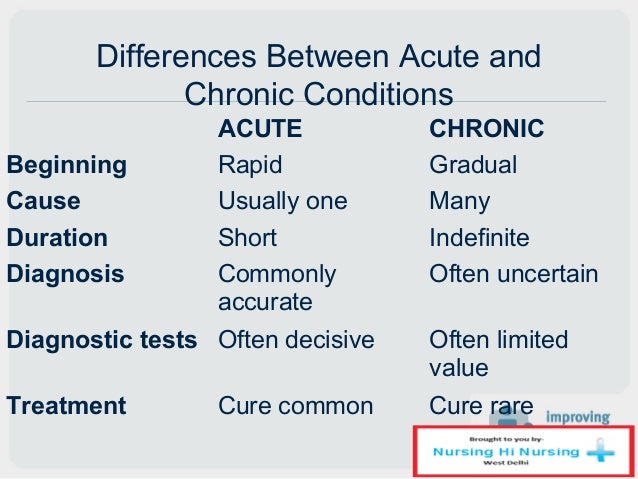

Post a Comment for "Difference Between Chronic And Acute Disease"